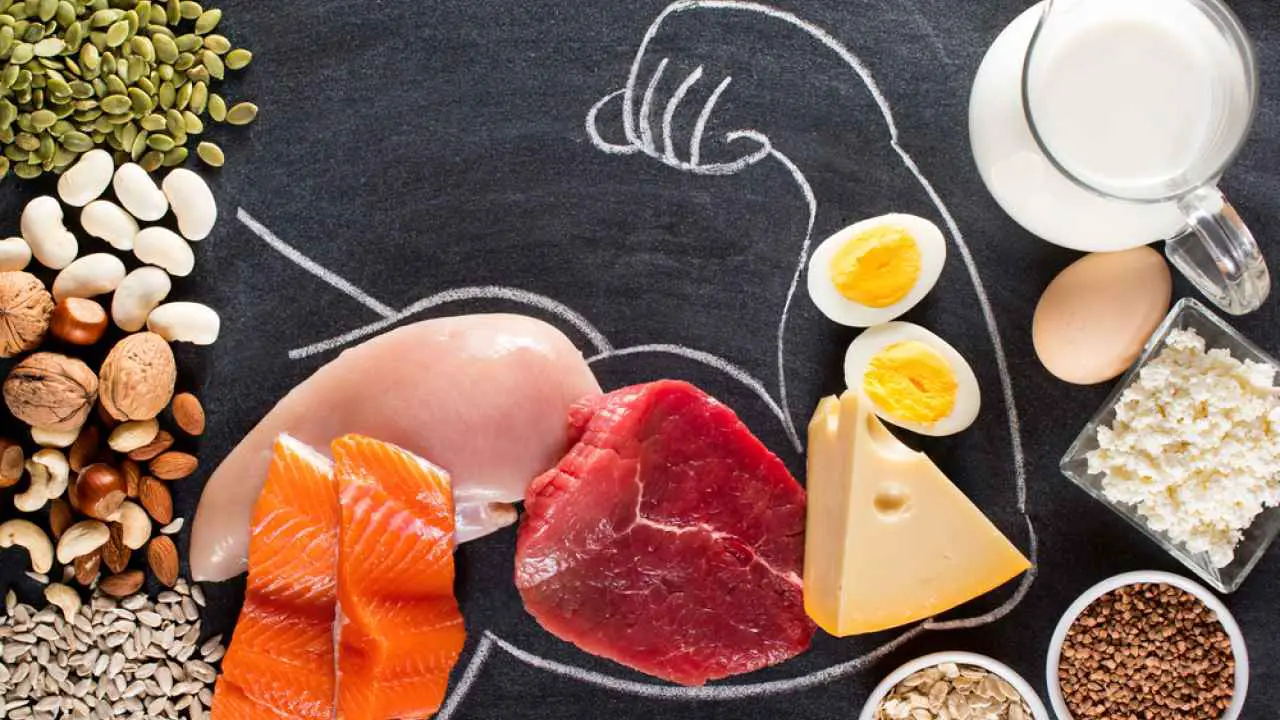When it comes to building muscle, nutrition plays a crucial role in supporting muscle growth and recovery. Here are some key dietary factors to consider when trying to maximize your muscle gains.
Protein
Protein is essential for building and repairing muscle tissue. Aim to consume a variety of high-quality protein sources, such as lean meats, fish, poultry, eggs, dairy, legumes, and plant-based sources like tofu and tempeh. Aim to consume at least 1 gram of protein per pound of body weight per day to support muscle growth.
Protein is crucial for muscle growth as it provides the essential amino acids needed for muscle repair and growth. It’s important to consume a variety of protein sources throughout the day to ensure that you are getting all the essential amino acids needed. Here are some protein-rich foods to include in your diet:
- Chicken breast (28g protein per 100g)
- Turkey (29g protein per 100g)
- Lean beef (26g protein per 100g)
- Fish (20g protein per 100g)
- Eggs (6g protein per egg)
- Greek yogurt (10g protein per 100g)
- Cottage cheese (11g protein per 100g)
- Beans (7-10g protein per 100g)
- Lentils (9g protein per 100g)
- Tofu (8g protein per 100g)
- Tempeh (18g protein per 100g)
Carbohydrates
Carbohydrates are the primary fuel source for high-intensity exercise and can also help to support muscle growth. Choose complex carbohydrates like whole grains, fruits, and vegetables, and aim to consume them before and after workouts to fuel your workouts and replenish glycogen stores.
Carbohydrates are important for providing energy during workouts and helping to replenish glycogen stores in the muscles after a workout. Aim for complex carbohydrates as they are slower to digest and provide a sustained release of energy. Here are some examples of complex carbohydrates to include in your diet:
- Brown rice (23g carbohydrates per 100g)
- Quinoa (21g carbohydrates per 100g)
- Whole grain bread (18g carbohydrates per slice)
- Oats (54g carbohydrates per 100g)
- Sweet potatoes (20g carbohydrates per 100g)
- Fruits (such as apples, bananas, and berries)
- Vegetables (such as broccoli, spinach, and carrots)
Fats
Healthy fats like nuts, seeds, avocados, and fatty fish provide essential nutrients and can also help to support muscle growth and recovery. Aim to consume a moderate amount of healthy fats as part of a well-balanced diet.
Healthy fats are important for overall health and wellness, but they also play a role in supporting muscle growth and recovery. Aim for healthy sources of fats like nuts, seeds, avocados, and fatty fish. Here are some examples of healthy fats to include in your diet:
- Avocado (14g fat per 100g)
- Nuts (such as almonds, walnuts, and cashews)
- Seeds (such as chia, flax, and pumpkin seeds)
- Fatty fish (such as salmon and mackerel)
- Olive oil (14g fat per tablespoon)
Timing
When it comes to muscle growth, timing your meals and snacks is also important. Aim to consume a protein-rich snack or meal within 30 minutes to an hour after your workout to provide your muscles with the nutrients they need for recovery and growth. Consider consuming a combination of protein and carbohydrates before and after workouts to fuel your workouts and support muscle recovery.
Timing your meals and snacks is important for muscle growth and recovery. Aim to consume a protein-rich snack or meal within 30 minutes to an hour after your workout to provide your muscles with the nutrients they need for recovery and growth. Consider consuming a combination of protein and carbohydrates before and after workouts to fuel your workouts and support muscle recovery. Here are some examples of pre and post-workout snacks:
Pre-workout:
- Banana with almond butter
- Greek yogurt with berries
- Whole grain toast with avocado
- Apple slices with peanut butter
Post-workout:
- Protein shake with banana and almond milk
- Grilled chicken with sweet potato and green beans
- Tuna salad with whole grain crackers
- Cottage cheese with pineapple chunks
Hydration
Staying hydrated is important for overall health, but it also plays a role in supporting muscle growth and recovery. Aim to drink plenty of water throughout the day and consider consuming a sports drink or electrolyte-rich beverage during and after intense workouts to replenish lost fluids and electrolytes. It’s recommended to drink at least 8-10 cups of water per day, but this may vary depending on your individual needs.
In summary, consuming a balanced diet rich in high-quality protein, complex carbohydrates, healthy fats, and plenty of fluids can help to support muscle growth and recovery. Consider timing your meals and snacks to support optimal muscle growth, and don’t forget to prioritize rest and recovery to allow your muscles time to repair and rebuild. With the right nutrition and training program, you can maximize your muscle gains and achieve your fitness goals.


